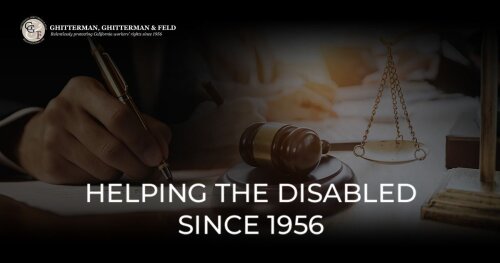Best Travel Accident Lawyers in Vermont
Share your needs with us, get contacted by law firms.
Free. Takes 2 min.
Or refine your search by selecting a city:
List of the best lawyers in Vermont, United States
About Travel Accident Law in Vermont, United States
Travel accident law in Vermont deals with personal injuries or damages sustained while traveling. Whether you are driving a car within the state, taking public transit, riding a bicycle, or walking as a pedestrian, accidents can occur in many forms. These legal matters may involve motor vehicle collisions, bus or taxi accidents, slip and fall incidents at hotels or travel facilities, or injuries sustained while participating in tours or recreational activities. Travel accident law helps determine liability, secure compensation for injuries or losses, and ensure travelers’ rights are protected under state statutes and local ordinances.
Why You May Need a Lawyer
People involved in travel accidents often face challenging circumstances that require legal assistance. Here are common reasons you may need a lawyer for a travel accident in Vermont:
- Disputes with insurance companies regarding coverage, liability, or adequate compensation.
- Unclear fault or multi-party accidents, where several people or entities may share responsibility.
- Severe or lasting injuries requiring fair compensation for medical expenses, lost wages, and pain and suffering.
- Difficulties with out-of-state parties, such as tourists visiting Vermont or Vermont residents injured while traveling elsewhere.
- Negotiating settlements or pursuing personal injury lawsuits when a fair agreement cannot be reached outside of court.
- Cases involving rental cars, commercial transportation, or public transit, which can have complex liability issues.
Having legal counsel from the start ensures your rights are protected and maximizes your chances for a positive outcome.
Local Laws Overview
Vermont’s laws impose some specific requirements and offer protections for individuals involved in travel accidents:
- Comparative Fault: Vermont applies modified comparative negligence. If you are found less than 50 percent at fault for the accident, you can recover damages, but your compensation may be reduced by your percentage of fault.
- Statute of Limitations: In Vermont, you generally have three years from the date of the accident to file a personal injury lawsuit. Property damage claims have a similar limitation period.
- Insurance Requirements: Vermont law requires all drivers to carry minimum amounts of liability insurance. Uninsured and underinsured motorist coverage is also mandatory.
- Pedestrian and Cyclist Protections: State laws provide additional rights and responsibilities for non-motorized travelers, which can affect liability in the event of a travel accident.
- No-Fault Provisions: Vermont is not a no-fault state, so you may pursue claims against the at-fault party's insurance.
- Reporting Accidents: Police must be notified if an accident results in injury, death, or significant property damage. An accident report is often essential for legal claims.
Frequently Asked Questions
What should I do immediately after a travel accident in Vermont?
Ensure everyone’s safety, call law enforcement to report the accident, seek medical attention even for minor injuries, exchange information with others involved, and document the scene with photos and notes.
Do I have to report all travel accidents to the police in Vermont?
You are required to report any accident that results in injury, death, or property damage over a certain threshold. It’s best to file a report to protect your interests.
How does fault affect my ability to recover damages?
Vermont’s comparative negligence system means your recovery is reduced by your percentage of fault. If you are found more than 50 percent at fault, you cannot recover damages.
Can I still make a claim if I was partially at fault for the accident?
Yes, as long as you are not more than 50 percent responsible, but your compensation will be adjusted according to your share of fault.
What if the other driver was uninsured or underinsured?
Vermont requires insurance policies to include uninsured and underinsured motorist coverage, so your own insurance may still compensate you for your losses.
Do travel accident claims cover injuries from public transportation accidents?
Yes, if you are injured while using public transportation, you may be able to file a claim against the transit authority or other responsible parties.
How long do I have to file a claim after a travel accident?
You generally have three years to file a personal injury lawsuit in Vermont, but you should start your claim as soon as possible to preserve evidence and meet notice requirements.
What types of damages can I recover in a travel accident case?
Damages may include medical expenses, lost wages, pain and suffering, property damage, and other losses directly resulting from the accident.
Do I need a lawyer for minor travel accidents?
You may not need one for minor accidents with clear fault and minimal damages, but a lawyer can help if there are disputes, significant injuries, or complications.
How much does it cost to hire a travel accident lawyer in Vermont?
Many personal injury lawyers work on a contingency fee basis, meaning they only get paid if you win your case. Consultations are typically free to discuss your situation.
Additional Resources
Here are some helpful organizations and resources for those seeking more information or assistance after a travel accident in Vermont:
- Vermont Department of Motor Vehicles - accident reporting and insurance requirements.
- Vermont Judiciary - information about court procedures and filing claims.
- Office of the Vermont Attorney General - resources for consumer protection and insurance issues.
- Local police departments - for reporting accidents and obtaining accident reports.
- Legal aid organizations in Vermont - for low-cost or free legal advice if you qualify.
Next Steps
If you have been involved in a travel accident in Vermont and believe you need legal assistance, follow these steps:
- Gather and organize all documentation related to the accident, including police reports, medical records, photos, and insurance correspondence.
- Consult with a qualified local attorney experienced in travel accident or personal injury law. Bring your documentation to your initial meeting.
- File all necessary reports and claims with relevant authorities and insurance companies within required deadlines.
- Follow your attorney’s advice regarding negotiations, legal filings, or court appearances.
- Use available resources from governmental bodies or legal aid groups for guidance or assistance if you are unsure how to proceed.
Act promptly to protect your rights and maximize the possibility of a successful outcome for your claim.
Lawzana helps you find the best lawyers and law firms in Vermont through a curated and pre-screened list of qualified legal professionals. Our platform offers rankings and detailed profiles of attorneys and law firms, allowing you to compare based on practice areas, including Travel Accident, experience, and client feedback.
Each profile includes a description of the firm's areas of practice, client reviews, team members and partners, year of establishment, spoken languages, office locations, contact information, social media presence, and any published articles or resources. Most firms on our platform speak English and are experienced in both local and international legal matters.
Get a quote from top-rated law firms in Vermont, United States — quickly, securely, and without unnecessary hassle.
Disclaimer:
The information provided on this page is for general informational purposes only and does not constitute legal advice. While we strive to ensure the accuracy and relevance of the content, legal information may change over time, and interpretations of the law can vary. You should always consult with a qualified legal professional for advice specific to your situation.
We disclaim all liability for actions taken or not taken based on the content of this page. If you believe any information is incorrect or outdated, please contact us, and we will review and update it where appropriate.
Browse travel accident law firms by city in Vermont
Refine your search by selecting a city.










